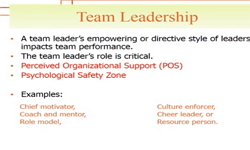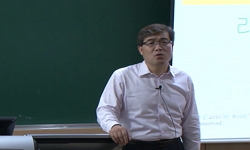Abstract The Effects of Children’s Leadership Program on Children’s Self-Leadership and Individual Intelligence Kim, Mi Jjin Major in Early Children Education Graduate School of Education Soongsil University Supervisied by Professor. ...
http://chineseinput.net/에서 pinyin(병음)방식으로 중국어를 변환할 수 있습니다.
변환된 중국어를 복사하여 사용하시면 됩니다.
- 中文 을 입력하시려면 zhongwen을 입력하시고 space를누르시면됩니다.
- 北京 을 입력하시려면 beijing을 입력하시고 space를 누르시면 됩니다.
유아 리더십 프로그램이 유아 셀프리더십과 개인지능에 미치는 영향 = The Effects of Children’s Leadership Program on Children’s Self-Leadership and Individual Intelligence
한글로보기https://www.riss.kr/link?id=T11807867
- 저자
-
발행사항
서울 : 숭실대학교 교육대학원, 2009
-
학위논문사항
학위논문(석사) -- 숭실대학교 교육대학원 , 유아교육전공(교원) , 2009. 8
-
발행연도
2009
-
작성언어
한국어
- 주제어
-
발행국(도시)
서울
-
형태사항
; 26cm
-
일반주기명
지도교수 :이경화
- 소장기관
-
0
상세조회 -
0
다운로드
부가정보
다국어 초록 (Multilingual Abstract)
Abstract
The Effects of Children’s Leadership Program on
Children’s Self-Leadership and Individual Intelligence
Kim, Mi Jjin
Major in Early Children Education
Graduate School of Education Soongsil University
Supervisied by Professor. Lee, Kyung Hwa
In order to determine what effects children’s leadership program has on their self-leadership and individual intelligence, this study subjected four-year-olds to a children’s leadership program. The following hypotheses were set to verify the effectiveness of the program.
Hypothesis 1: The children’s leadership program will help improve children’s self-leadership (consisting in behavioral, compensatory, and thinking strategies).
Hypothesis 2: The children’s leadership program will help improve children’s individual intelligence (both individual and interpersonal).
Participating in this study were twenty-eight four-year-old children from two classes at S Kindergarten, located in Seoul. There were fourteen students in each class. Children in one class (the experimental group) were exposed to the children’s leadership program, while children in the other class (the control group) were exposed to a sociability program on a random basis.
The experiment took place over four weeks, from April 20, 2009, through May 15, 2009, three times per week, for twelve times in total. The tools of measurement used include the Children’s Self-leadership Evaluation Tool and the Multiple Intelligence Questionnaire for Children. The SPSS win 14.0 program and t-test were used as the pre-test and post-test, respectively, to ensure and analyze the differences between the two groups.
The following results were obtained in this study.
First, the children in the experimental group exposed to the children’s leadership program showed a statistically significant difference (i.e., improvement) from the children in the control group exposed to the sociability program in terms of self-leadership (consisting in behavioral, compensatory, and thinking strategies). In other words, the children’s leadership program helped improve children’s self-leadership.
Second, the children’s leadership program also helped to improve children’s individual intelligence (both individual and interpersonal). Because the children’s leadership program consists of contents designed to help children improve both their individual and interpersonal intelligence, it can help children to improve their individual intelligence.
In conclusion, the children’s leadership program helps children improve self-leadership and individual intelligence. The findings of this study should help increase the application of the program in preschool education to improve children’s self-leadership and individual intelligence.
국문 초록 (Abstract)
국문초록 유아 리더십 프로그램이 유아 셀프리더십과 개인지능에 미치는 영향 유아교육전공 김미진 지 도 교 수 이경화 본 연구에서는 유아 리더십 프로그램이 유아의 셀프...
국문초록
유아 리더십 프로그램이
유아 셀프리더십과 개인지능에 미치는 영향
유아교육전공 김미진
지 도 교 수 이경화
본 연구에서는 유아 리더십 프로그램이 유아의 셀프리더십과 개인지능에 어떠한 영향을 미치는지 알아보고자, 만 4세 유아를 대상으로 하여 유아 리더십 프로그램을 적용하여 그 효과를 알아보았다. 연구의 목적을 위하여 다음과 같은 가설을 설정하고 그 효과를 검증하였다.
가설 1. 유아 리더십 프로그램은 유아의 셀프리더십(행동전략, 보상전략, 사고전략) 향상에 효과가 있을 것이다.
가설 2. 유아 리더십 프로그램은 유아의 개인지능(개인내․대인간지능) 향상에 효과가 있을 것이다.
본 연구의 대상은 서울특별시에 소재한 S유치원의 만 4세반 두 학급의 유아 28명이다. 각 학급당 유아 수는 14명이며, 두 학급 중 한 학급은 유아 리더십 프로그램을 적용하는 실험집단에 다른 한 학급은 사회성 프로그램을 실시하는 통제 집단에 임의 배정하였다.
실험기간은 2009년 4월 20일부터 5월 15일까지 주 3회로 4주 동안 총 12회에 걸쳐서 실험을 진행하였다. 측정도구로는유아 셀프리더십 평가도구와유아용 다중지능 검사(MIQ)를 사용하였으며, 사전․사후검사 자료는 SPSS win 14.0 프로그램을 사용하여 t-test를 실시하여 두 집단 간의 차이를 분석하였다.
본 연구에서 얻어진 결과를 요약하면 다음과 같다.
첫째, 유아 리더십 프로그램을 적용한 실험집단의 유아가 사회성프로그램을 적용한 통제집단의 유아보다 셀프리더십(행동전략, 보상전략, 사고전략)에 통계적으로 유의미한 차이가 나타났다. 즉, 유아 리더십 프로그램은 유아의 셀프리더십 향상에 효과적인 것으로 확인되었다.
둘째. 유아 리더십 프로그램은 유아의 개인지능(개인내․대인간 지능) 향상에 효과적인 것으로 확인되었다. 이는 유아 리더십 프로그램의 교수-학습활동이 개인내 지능과 대인간 지능을 향상시키는 내용으로 구성되어 있었으며, 유아들의 수준에 맞는 적절한 내용으로 개인지능을 향상시킬 수 있음을 확인하였다.
이와 같은 본 연구의 결과를 종합해 볼 때, 유아 리더십 프로그램은 유아의 셀프리더십과 개인지능 향상에 효과가 있음을 확인하였다. 따라서 본 연구에서 사용된 유아 리더십 프로그램이 유아교육 현장에서 유아의 셀프리더십과 개인지능을 향상시키기 위한 교육 프로그램으로 활용될 수 있기를 기대한다.
목차 (Table of Contents)
- 국문초록 ⅴ
- Abstract ⅶ
- Ⅰ.서론 1
- 1.연구의 필요성 및 목적 1
- 2.연구 문제 6
- 국문초록 ⅴ
- Abstract ⅶ
- Ⅰ.서론 1
- 1.연구의 필요성 및 목적 1
- 2.연구 문제 6
- Ⅱ.이론적 배경 7
- 1.리더십과 셀프리더십 7
- 1) 리더십의 정의 7
- 2) 리더십 이론의 전개과정 9
- 3) 셀프리더십의 개념 18
- 2.다중지능 이론 24
- 1) 다중지능의 개념 24
- 2) 다중지능의 영역 26
- 3) 개인지능의 의미 33
- 3.셀프리더십과 개인지능 35
- Ⅲ.연구가설 37
- Ⅳ.연구방법 38
- 1.연구대상 38
- 2.연구도구 38
- 1) 검사도구 39
- 2) 실험도구 42
- 3.연구절차 44
- 1) 교사훈련 44
- 2) 사전검사 45
- 3) 실험처치 46
- 4) 사후검사 50
- 4.자료의 처리 50
- Ⅴ.연구의 결과 및 해석 52
- Ⅵ.논의 및 결론 64
- 1.논의 64
- 2.결론 및 제언 65
- 참고문헌 72
- 부 록 72












